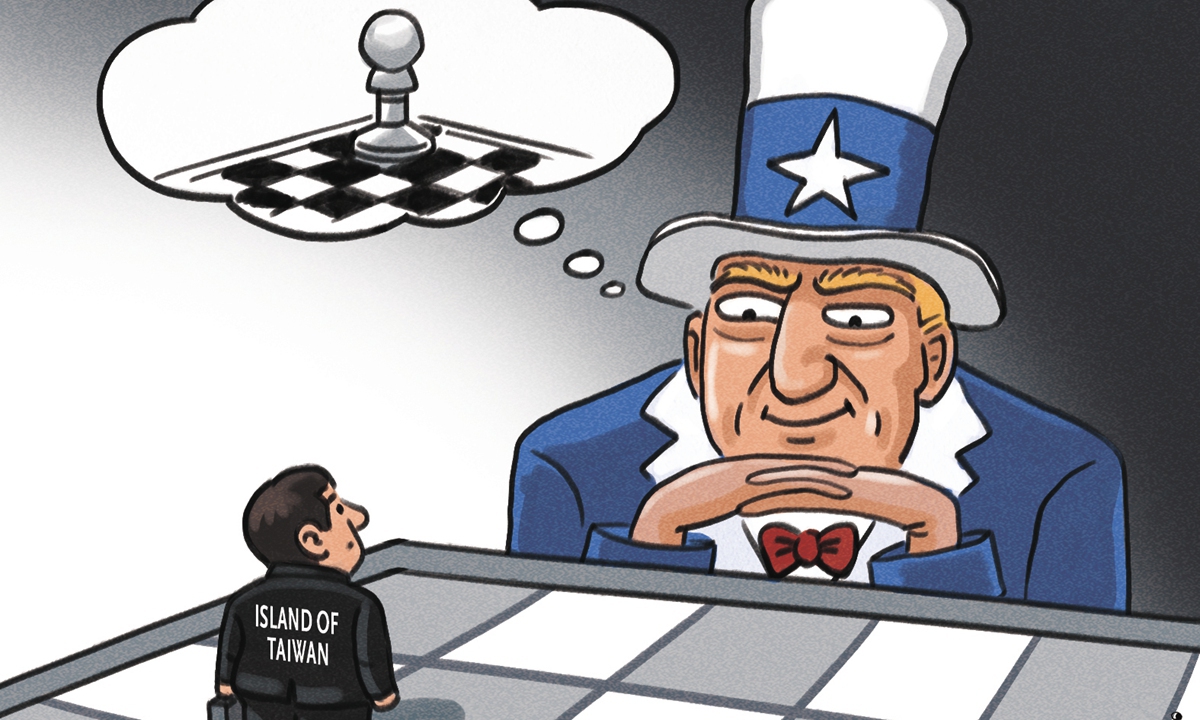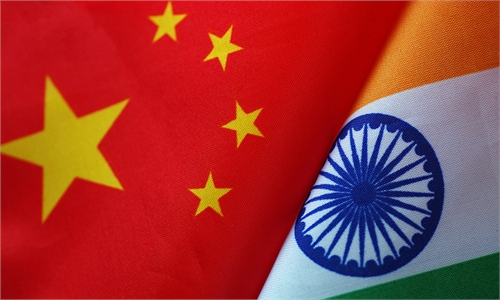Political hype about US trade deal negotiation with Taiwan island deserves little attention

Illustration: Liu Rui/GT
The Brookings Institution on Tuesday released a list of actionable foreign policy ideas for the next president, of which the first is pursuing deeper trade ties with the island of Taiwan.While the Washington-based think tank didn't elaborate on the idea, some US senators and media outlets have been calling for the initiation of formal negotiations on a bilateral trade agreement with the island recently, triggering concerns about the further jeopardizing risks to the US-China relationship and the peace and stability across the Taiwan Straits.
However, whether from a political or economic point of view, such political hype, with no practical relevance, is not worth the attention.
From the US perspective, while Washington may resort to the political conspiracy of using Taiwan to jeopardize the rise of the Chinese mainland, trade with Taiwan is far from enough to lure the US to sabotage the conditions set for the normalization of US-China relations back in the 1970s.
It is true that the island of Taiwan has become one of the world's major suppliers of semiconductors and other high-tech products, while the US is seeking supply chain stability to maintain its dominance in the global technology industry. But a seemingly more efficient and assured approach than closer trade ties would be to ask multinationals to set up production lines in the US, which is exactly what Washington has been pushing for recently. In late September, US lawmakers reportedly mulled subsidies of about $25 billion to encourage companies to relocate chip production facilities to the country.
From Taiwan's perspective, no one except separatists would think that the island could do better if it really got rid of the economic dependence on the mainland. As the biggest for Taiwan's manufacturing products, the mainland and Hong Kong accounted for more than 46 percent of Taiwan's total exports in September. Now the mainland economy has bounced back to growth, while the US economy is still struggling with recession. Anyone with a basic knowledge of economic and trade relations could easily see that Taiwan is bound to benefit from the mainland's economic recovery, while the prospects for its trade with the US would be overshadowed by the continuing epidemic.
Most importantly, the US has no justified position to strengthen its trade ties with the island of Taiwan through any official approach. Zhu Fenglian, a spokesperson for the Taiwan Affairs Office of the State Council, said at a press conference on Wednesday that "the Taiwan question is China's internal affairs, which brooks no external interference. China firmly opposes any official interactions between the US and the island of Taiwan. All US circles including think tanks should urge the US government to abide by the three China-US joint communiques to properly handle the Taiwan question instead of sending wrong signals to the Democratic Progressive Party authority and 'Taiwan independence' forces."
With the US 2020 presidential election less than one week away, it is unknown what foreign policy and trade policy the next US administration will adopt in the next four years. With so many uncertainties worth attention, there is really no need to care too much about such a political hype that is doomed to meet a dead end.


